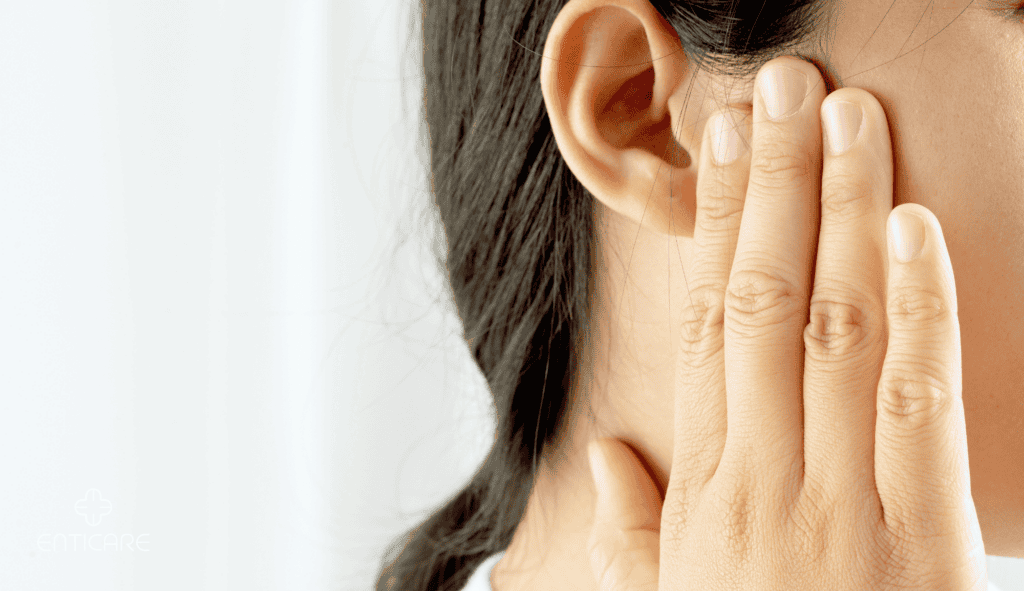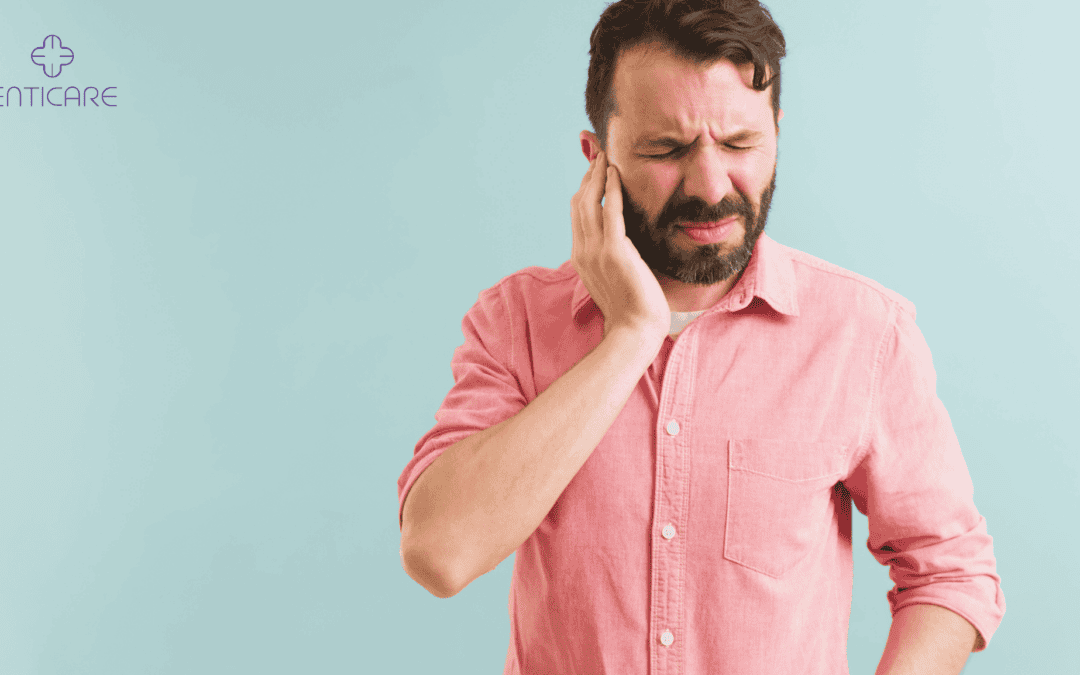Imagine sitting in a quiet room and suddenly noticing a rhythmic pulsing sound in your ears. This sensation, often called pulsatile tinnitus, can feel like hearing your heartbeat in your ears.
For many, anxiety plays a role in amplifying this pulsing. Chronic tinnitus, a long-term condition, can be exacerbated by stress and mental health issues such as insomnia, anxiety, and depression. Understanding the relationship between anxiety and ear pulsing can empower you to take the proper steps to address these sensations and regain peace of mind.

What is Tinnitus?
Tinnitus is a common condition characterized by the perception of ringing, buzzing, hissing, or other sounds in the ears when there is no external source of the noise. It is a symptom, not a disease, and can be caused by a variety of factors, including exposure to loud noise, earwax buildup, ear infections, and certain medications. Tinnitus can be acute or chronic, and its severity can vary from person to person. According to the American Tinnitus Association, approximately 50 million people in the United States experience some form of tinnitus, with about 12 million seeking medical attention for the condition.
What Causes Pulsing in the Ears and Tinnitus Symptoms?
High Blood Pressure and Its Impact
Elevated blood pressure increases blood flow intensity, leading to noticeable pulsations in sensitive areas like the ears. Stress and anxiety can temporarily spike blood pressure, exacerbating these sensations. This can lead to stress induced tinnitus, where stress exacerbates or triggers tinnitus symptoms.
Circulatory System Irregularities
Conditions like atherosclerosis or narrowed blood vessels can disrupt normal blood flow, causing turbulent noises audible in the ears.

The Role of Stress in Heightened Awareness and Stress Induced Tinnitus
During stress or anxiety episodes, the body becomes hyper-aware of internal processes, making you notice subtle noises like ear pulsing. This heightened awareness can lead to increased psychological distress, further exacerbating tinnitus symptoms.
Learn more about the connection between blood pressure and ear pulsing.
Anxiety’s Role in Pulsatile Tinnitus
How Anxiety Triggers Sensory Sensitivity
Anxiety heightens the nervous system’s response to stimuli, making you more aware of bodily functions, including internal sounds like blood flow in the ears. Increased anxiety can lead to higher tinnitus severity, making the symptoms more pronounced.
Adrenaline and Increased Blood Flow
When you feel anxious, your body releases adrenaline, which increases blood flow to prepare for “fight or flight.” This surge often contributes to the pulsating sound. Individuals with moderate or severe anxiety often report more intense tinnitus symptoms.
Feedback Loops Between Anxiety and Ear Pulsing
The sound of pulsing can increase anxiety, creating a cycle. The more you focus on it, the more noticeable it becomes, intensifying both the pulsing and your worry.
Read about how anxiety affects sensory processing.
The Connection Between Hearing Loss and Tinnitus
Hearing loss is a common comorbidity with tinnitus, and research suggests that there is a strong connection between the two conditions. Studies have shown that individuals with hearing loss are more likely to experience tinnitus, and that the severity of tinnitus is often correlated with the degree of hearing loss. The exact mechanisms underlying this connection are not fully understood, but it is thought that damage to the hair cells in the inner ear, which can lead to hearing loss, may also contribute to the development of tinnitus. Additionally, hearing loss can exacerbate tinnitus symptoms, making it more difficult for individuals to manage their condition.

Finding Relief: Managing Ear Pulsing, Chronic Tinnitus, and Anxiety
Relaxation Techniques to Reduce Symptoms
Simple practices like deep breathing, progressive muscle relaxation, and mindfulness meditation can offer hope by calming your body and reducing the intensity of ear pulsing. These techniques can also help reduce tinnitus related distress by calming the body and mind.
Lifestyle Changes to Improve Circulatory Health
- Eat a heart-healthy diet low in sodium and rich in whole grains.
- Engage in regular moderate exercise to support cardiovascular health.
- Stay hydrated to maintain optimal blood viscosity.
Home Remedies for Tinnitus and Anxiety
While there is no cure for tinnitus, there are several home remedies that may help alleviate symptoms and reduce anxiety. Some of these remedies include:
- Sound therapy: Listening to calming sounds, such as nature sounds or white noise, can help mask tinnitus symptoms and reduce anxiety.
- Mindfulness-based stress reduction: Practicing mindfulness techniques, such as meditation or deep breathing, can help reduce stress and anxiety, which can exacerbate tinnitus symptoms.
- Exercise: Regular exercise can help reduce stress and anxiety, improve mood, and promote better sleep, all of which can help alleviate tinnitus symptoms.
- Cognitive behavioral therapy (CBT): CBT is a type of therapy that can help individuals change their negative thought patterns and behaviors associated with tinnitus and anxiety.
- Relaxation techniques: Techniques such as progressive muscle relaxation, visualization, and yoga can help reduce stress and anxiety and promote relaxation.
It’s essential to note that while these remedies may be helpful in managing tinnitus and anxiety, they should not replace medical treatment. If you are experiencing tinnitus or anxiety, it’s crucial to consult with a healthcare professional for proper diagnosis and treatment. (Keep keywords: tinnitus symptoms)
When to Seek Professional Support
If you experience persistent ear pulsing and anxiety, it’s important to seek professional evaluation. Addressing psychiatric disorders such as anxiety and depression is crucial for managing tinnitus effectively. Cognitive-behavioral therapy (CBT) can be particularly helpful in breaking the feedback loop between anxiety and heightened awareness of bodily sensations.
When to Consult an ENT Specialist
Persistent or Worsening Pulsing in the Ears
If the pulsing does not improve or worsens over time, it could signal an underlying condition that needs evaluation.
Anxiety Symptoms That Impact Daily Life
If anxiety starts to disrupt your sleep, concentration, or social interactions, it’s crucial to seek help from a healthcare provider. An anxiety disorder can significantly disrupt daily activities and should be addressed by a healthcare provider. Restoring balance is essential for your overall well-being.
Comprehensive Care for Hearing Health and Hearing Loss
An ENT specialist can perform a detailed examination to rule out medical causes and provide tailored recommendations for managing symptoms. Hearing aids can be an effective intervention for managing tinnitus symptoms, offering relief alongside other therapies such as wearable sound generators and counseling.
Discover when to see an ENT specialist for tinnitus.
Key Takeaways
- Pulsing in the ears, or pulsatile tinnitus, often results from a heightened awareness of internal sounds caused by stress or anxiety.
- Managing blood pressure, relaxation techniques, and lifestyle changes can significantly reduce symptoms.
- Persistent or worsening symptoms require professional evaluation to rule out medical conditions.
Take Control of Your Ear Health
Pulsing in the ears can feel unsettling, especially when linked to anxiety. By understanding the underlying causes and taking proactive steps to manage both physical and mental health, you can find relief and regain your calm.
If the pulsing persists or causes significant distress, don’t wait to seek help. Schedule an appointment with Enticare today for expert hearing and ear health guidance.

